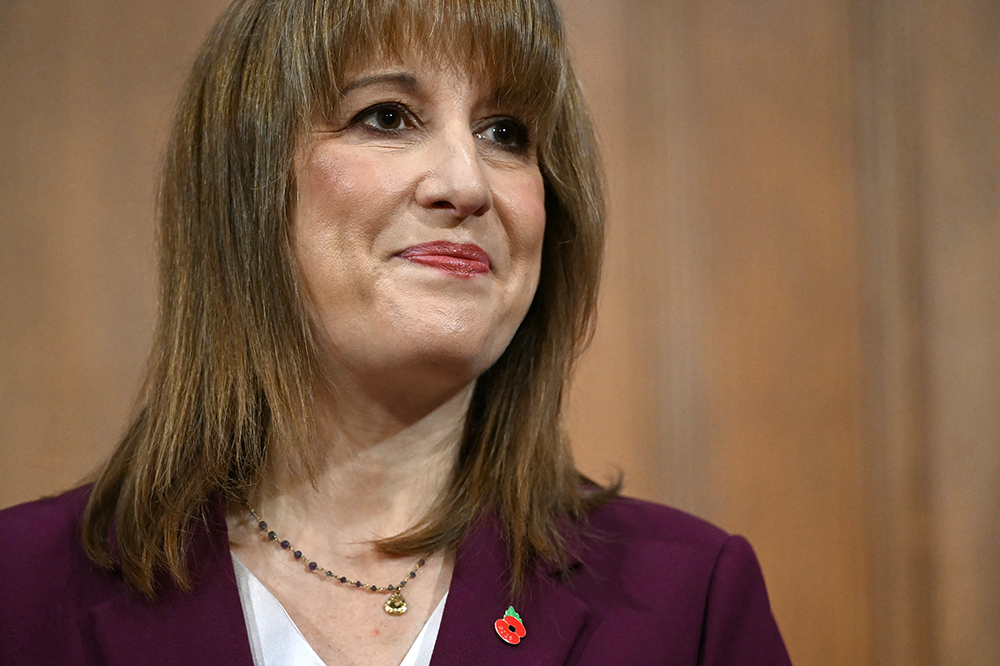Forty years ago, a whisky company, Highland Park, which advertised its Famous Grouse in The Spectator, approached us with a sponsorship offer. It wanted a debating competition to gain attention among ‘opinion-formers’. I had just become the editor, and was interested, but thought that debating was already covered by rivals (e.g. the Observer Mace). How about awards for politicians, I suggested. That might get their attention. Obviously, the thing would work only if it were politically neutral, so the awards must be for parliamentary achievement alone, regardless of party. Highland Park liked this idea of crowding a chunk of what business likes to call ‘UK plc’ into one room. The Spectator Parliamentarian of the Year Awards were born and have continued annually except during Covid. The latest were handed out at a dinner in Raffles on Tuesday (see website).
It sounds satirical now, but at that time we had serious concerns that MPs and peers might think it presumptuous of journalists to sit in judgment of what the Prayer Book calls ‘the High Court of Parliament now assembled’. I therefore devised a form of words about how the awards were offered only ‘in affection and respect’: the judges resembled ‘not law lords but theatre critics… happy in the knowledge that they will never have to rise from their seats and perform on the stage’. Our equivalents of Statler and Waldorf in The Muppets were Peter Jenkins of the Sunday Times, Alan Watkins of the Observer, Colin Welch of the Daily Mail – all alas, no longer with us – and James Naughtie and Michael White (both then of the Guardian), still flourishing. I was their chairman.
We need not have worried about any lèse-majesté. MPs were gagging for such attention, and the accompanying free luncheon at the Savoy. The only one who raised any doubt was – and this I did predict accurately – Enoch Powell, who questioned our right. After all, he told me, parliament itself had no way of honouring its own – ‘No, wait! It could vote to adjourn when I die.’ (He nevertheless, in a future year, accepted an award.) Beside each place was a handsomely bagged not-so-miniature bottle of Highland Park single malt. Everything went with a swing. The guest of honour was Lord Grimond, the former Liberal leader, ideally suited because the Highland Park distillery was (and is) in his former constituency of Orkney and Shetland and he was a seasoned consumer of the product. The speech by Highland Park’s chairman complaining about the Treasury’s ill usage of the whisky industry was convivially cheered. The winners were: Troublemaker of the Year: Tam Dalyell, the eccentric Labour baronet; Backbencher: Nicholas Budgen, the proto-Eurosceptic; Debater: Labour’s shadow environment secretary, Jack Cunningham. The category of Member to Watch divided the judges. It was intended for a young rising star, but some wanted to confer it on the former prime minister, Harold Macmillan, aged 90, who, as Earl of Stockton, had just made a sensational maiden speech in the Lords, in which he explained that the miners (currently on strike at the command of Arthur Scargill) had ‘beaten the Kaiser’. In that same speech, however, he had also forsworn any further ambition. The judges therefore gave the award to Malcolm Rifkind, then aged 38. We described him as ‘too clever for advancement in the Conservative party’. He ended up as foreign secretary.
The Parliamentarian of the Year was Dr David Owen, leader of the SDP, whom we praised for using the Commons ‘to great effect… as a forum for political argument’ at a time when others decreasingly did so. In those days, the proceedings of parliament were broadcast only on radio. Television followed in November 1989, ensuring a decline in the quality of debate and a growth in attention-seeking which have continued ever since.
Early one evening last week, I left my flat in Westminster, heading for the Tube. As I crossed the one-way street, I was nearly hit by a bicyclist going the wrong way down it. I objected but he pushed on. Annoyed, I grabbed him by the arm and said again: ‘Stop. It’s a one-way street.’ ‘You’re assaulting me,’ he said, ‘Are you a policeman?’ ‘No,’ I said, waxing pompous, ‘I am a citizen and a pedestrian, and you are breaking the law.’ I had failed to reckon, however, with his companion, who cycled up beside him and repeated his accusation: ‘Listen, you f***ing old c***, you’re committing an assault. You leave my mate alone or I’ll smash your f***ing face in.’ So I desisted, as he must have calculated I would. I was depressed by the sheer pointlessness of my action, the inevitability that no authority could stop the cyclists and the readiness with which they had tried to invoke the law against me. On I trudged to listen to a persuasive lecture by Niall Ferguson which began: ‘It is twilight in Starmer’s Britain.’
Lord Fellowes, late and greatly lamented private secretary to Queen Elizabeth II, was a trustee of the Rectory Society, which I chair. We all loved him. One of his successors, Lord Geidt, is on our board, so I commissioned his tribute to Robert Fellowes for our society’s newsletter, just out. In it, Christopher Geidt reveals a state secret. For Robert: ‘Cricket was certainly an abiding passion. The safe-crackers of Britain would have gained a head start to know that almost every one of the many combination locks in the Private Secretary’s Office [in Buckingham Palace] once betrayed memorable cricket scores set by Robert. The number of my own safe celebrated the Laker Match at Old Trafford in 1956. In a moment of stupidity, I thought it would be clever to test him about it. Without hesitation, Robert not only recited the score but also named the bowler of the only other wicket taken by England during the match (Tony Lock).’








Comments